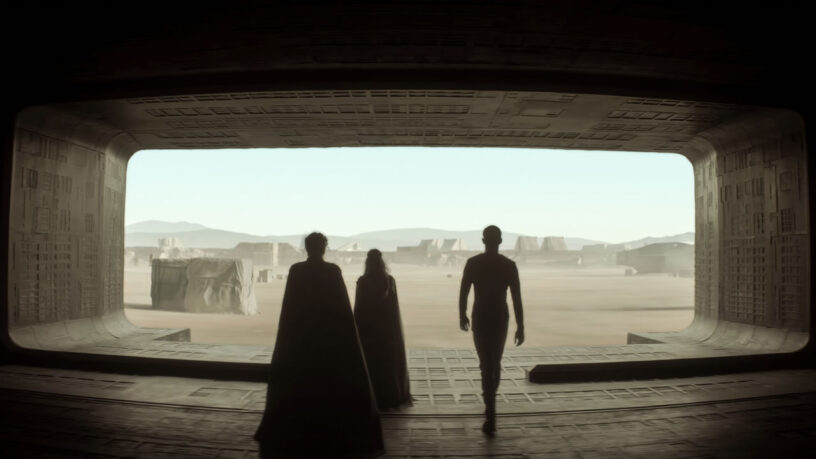In true Dune fashion, the closing episode of Dune: Prophecy focuses on the themes of human over machine, mind over body, and love and family. It also plays with the concepts of deception and truth through several body swaps. The fast pace and constant unveiling of secrets made for a satisfying end to the season.
Note: This article contains spoilers for events in Dune Prophecy episode 6.
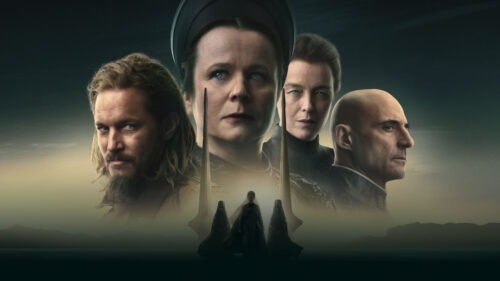
Human Over Machine
The threat of thinking machines takes center stage as the Sisterhood further investigates the virus associated with Desmond Hart’s murders. Studying the virus more closely, Tula and physician Nazir realize it’s a bio-weapon but not human-made and so can’t be neutralized in the usual way. Nazir’s inability to fight this new threat, despite her expertise, emphasizes how dangerous it is, as does Tula’s slump to the ground in shock.
Yet we know that Tula has been supportive of keeping the Sisterhood’s thinking machine running in secret. The flashback scenes reveal the high price that not only Dorothea but her followers paid for wanting to destroy this heretical project of Mother Raquella. It is not just that Valya’s Sisterhood was founded on lies and murder, or “blood-soaked roots” as Dorothea (possessing Lila’s body) calls them. It is that human lives were sacrificed for the sake of preserving a machine. This concept violates the prohibition against thinking machines, born out of the violence of the Butlerian Jihad, and challenges the Sisterhood’s principle of self-reliance.
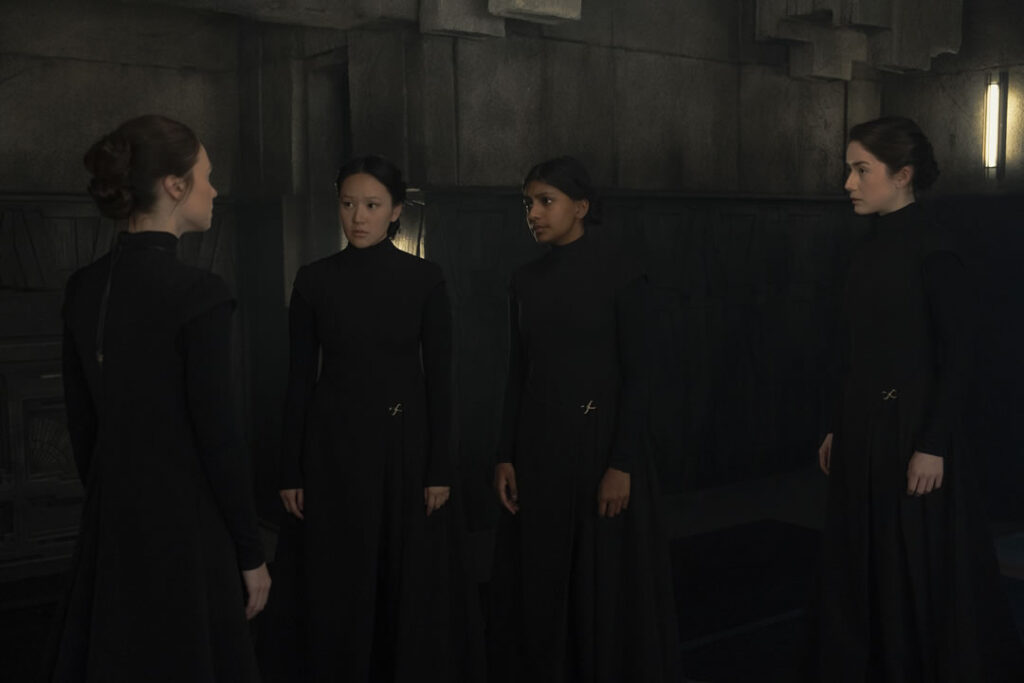
Even among the young Valya’s inner circle there was debate over this artificial mind managing the breeding program. In response to other women’s concerns, Valya says plainly, “In responsible hands any tool can be used for the betterment of humanity.” She believes that because the machine is quarantined from other tech, it won’t be a threat. As a loyal follower of Raquella, she wants the machine to remain a valuable asset, something that will give the Sisterhood an edge in their plans for humanity. However, Tula considers this an unrealistic expectation, saying, “The mind can’t be controlled forever, artificial or not.” The young Tula’s warning about artificial minds foreshadows the later discovery about what happened to Desmond Hart, and why humans should be prioritized over machines.
Mind Over Body
Throughout the season, we have seen glimpses of the Sisterhood’s training as the acolytes learn how to control every aspect of their mind and body. But we have also seen how vulnerable the body is to Desmond Hart. People are burned from the inside with no real explanation, and even Sisters Kasha and Nazir cannot withstand this attack.
Yet it is not as scientists that the Sisters overcome the virus, but as followers of Taoist philosophy – basically, letting go in order to accomplish their goal. Through Nazir’s death, Tula learns that the virus feeds on fear and that trying to fight it only increases its strength. This knowledge allows her to coach Valya through her own ordeal with the virus, and Valya’s release of both her past and her fear is what allows her to survive.
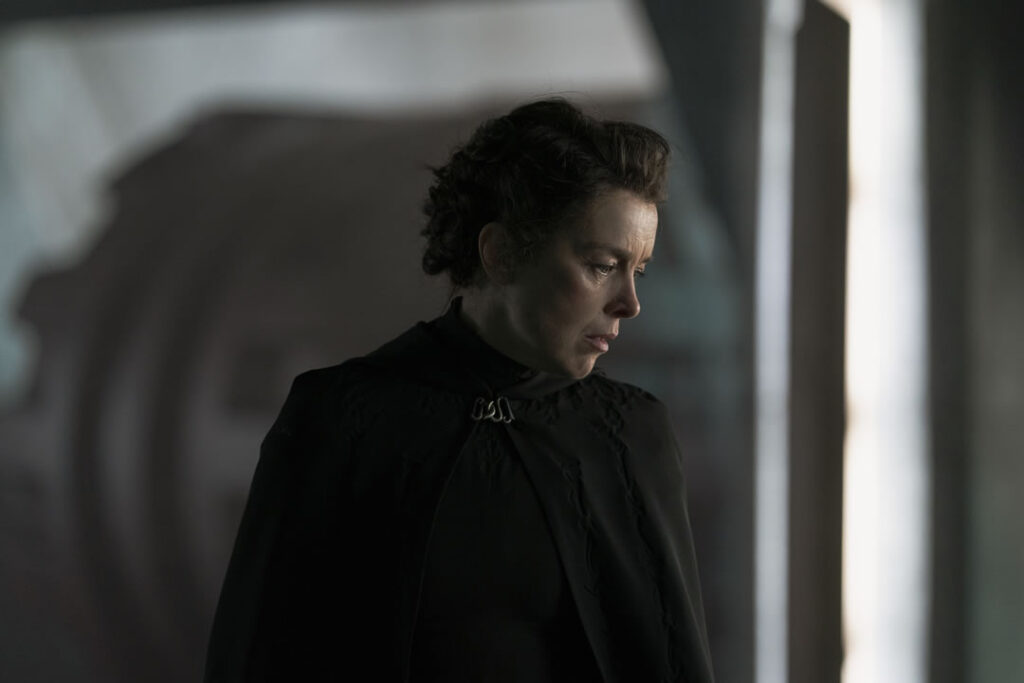
The ultimate show-down between Valya and Desmond Hart is actually somewhat anticlimactic, because neither of them have full control of themselves to be able to make their own decisions. Weakened by outside forces, they both fall to the ground and have to be saved by Tula. Tula is actually the one with the sharp mind who coaches Valya with words akin to the Litany Against Fear—“you have to let it pass through you”—and then persuades her to spare Desmond’s life. Although Tula has always been the more emotional sister, she demonstrates the strength of her mental capabilities in her efforts to save her family members.
Love and Family
Love becomes a motivating factor for women’s behavior even when it makes them go against the commands of the Sisterhood. Princess Ynez causes a problem by attempting to rescue her lover, Swordmaster Keiran Atreides, and getting imprisoned herself, by her own mother no less. Even once Valya rescues her and says they must leave Keiran, Ynez refuses to and gets her way.
Meanwhile, after a night spent with her former lover, the Emperor, Francesca pays a high cost for resisting Valya’s order to assassinate him. Torn between her love for him and her duty to the Sisterhood, Francesca lets down her guard as she tries to convince him she was sincere in her feelings. But her punishment for not fulfilling her duty comes quickly, and she succumbs to the scorned Empress deploying Francesca’s own needle against her. By not placing the Sisterhood above all, Francesca opens herself up to a surprise attack from a woman who isn’t playing the same game.
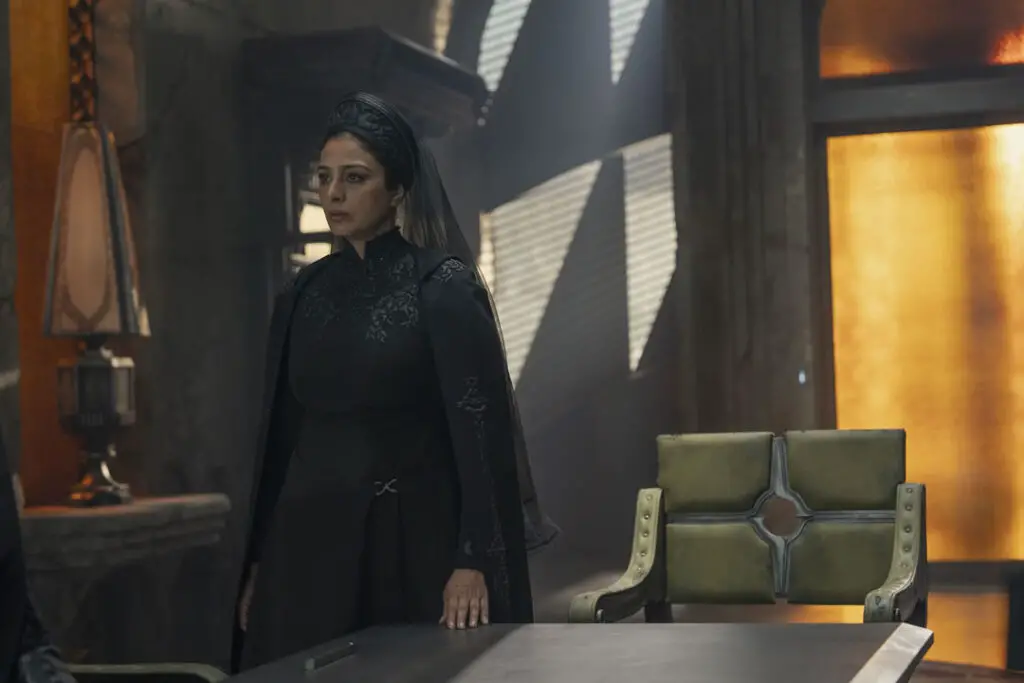
Desmond, too, is cared for by a Sister in defiance of what’s likely best for the Sisterhood. He may be the key villain, but now Tula knows he’s her son, and she has not abandoned her attachment to him. While he struggles to recover from the physical toll of his attack on Valya, Tula explains to her that he is not responsible: “My son was not born a weapon; he was made into one.” Just as Tula and Valya’s childhood experiences turned them into uncaring “wolves”, something in Desmond’s life turned him into a murderous soldier bent on destroying the Sisterhood. Her attempt to let him be free from their influence did not actually give him much freedom. But her love for him saves his life, as she convinces Valya not to kill him outright.
Body Swaps
The multiple body swaps in this episode all involve an element of deception, further emphasizing the series’ recurring theme of truth.
For some reason finding herself alone after having giving birth, Tula decides to set her son free on a path beyond her and Valya’s reach, although it doesn’t turn out to be a safer one in the end. But she can only accomplish this with the help of a fellow Sister, who switches her healthy infant son for a stillborn one from another mother in the town. Tula’s decision means lying to her closest confidante, Valya, for all of these years, showing how even their sisterly bond is built on a lack of trust.
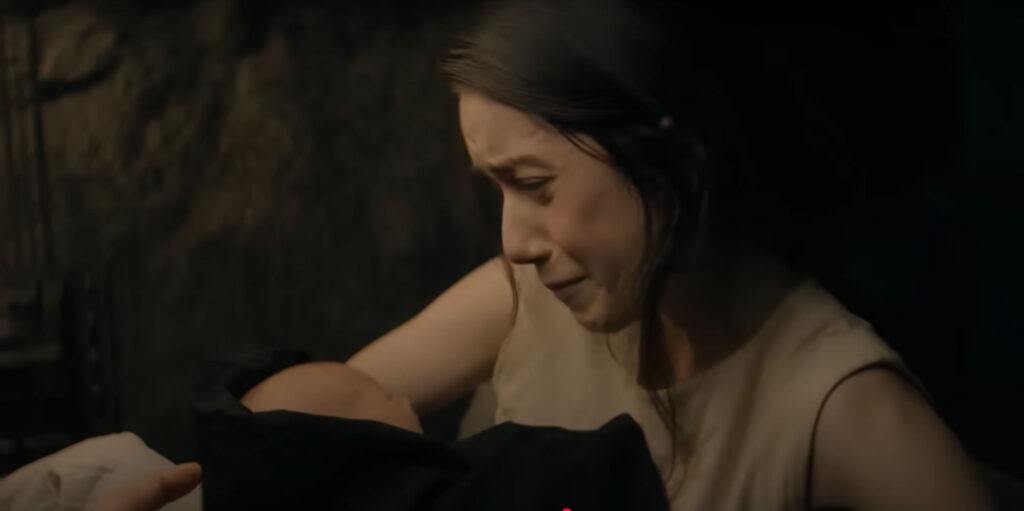
In another example, Sister Theodosia is confirmed to be a shape-shifter out of a Tleilax experiment, saved by the Sisterhood. Her body is literally at her command to transform into that of another person, and she can become whoever Valya needs her to be. All we see is Theodosia leaning against a wall and her hands morphing, then she could be anyone.
Lila continues in this Jekyll-and-Hyde vein when she’s possessed by the vengeful ancestor Dorothea and convinces her friend Jen to loosen her restraints. Not realizing Lila is possessed, Jen tries to make her more comfortable and ends up being injected with a sedative and put in restraints, all for being too trusting. Having just used deception to her advantage, Lila-as-Dorothea then attempts to expose and condemn Valya’s deception from the past. In her plain white garment and loose hair, Lila-as-Dorothea appears like an unkempt monk one step away from madness, though she ultimately proves her truth about the mass murder of her followers.
The amount of lying and deception by these characters highlights the difficulty in determining what is true, even in a universe where the Truthsaying ability exists.
Reaction
It was satisfying to see the numerous elements of Dune throughout this episode, including a poisoned needle, a hint at the Litany Against Fear, and another instance of Abomination. The irony in Valya and Desmond being enemies but also family was unexpected and certainly complicated the conflict. The show actually managed to make their face-off very Dune-like, by giving more weight to the mental and psychological aspects of their battle than the physical one.
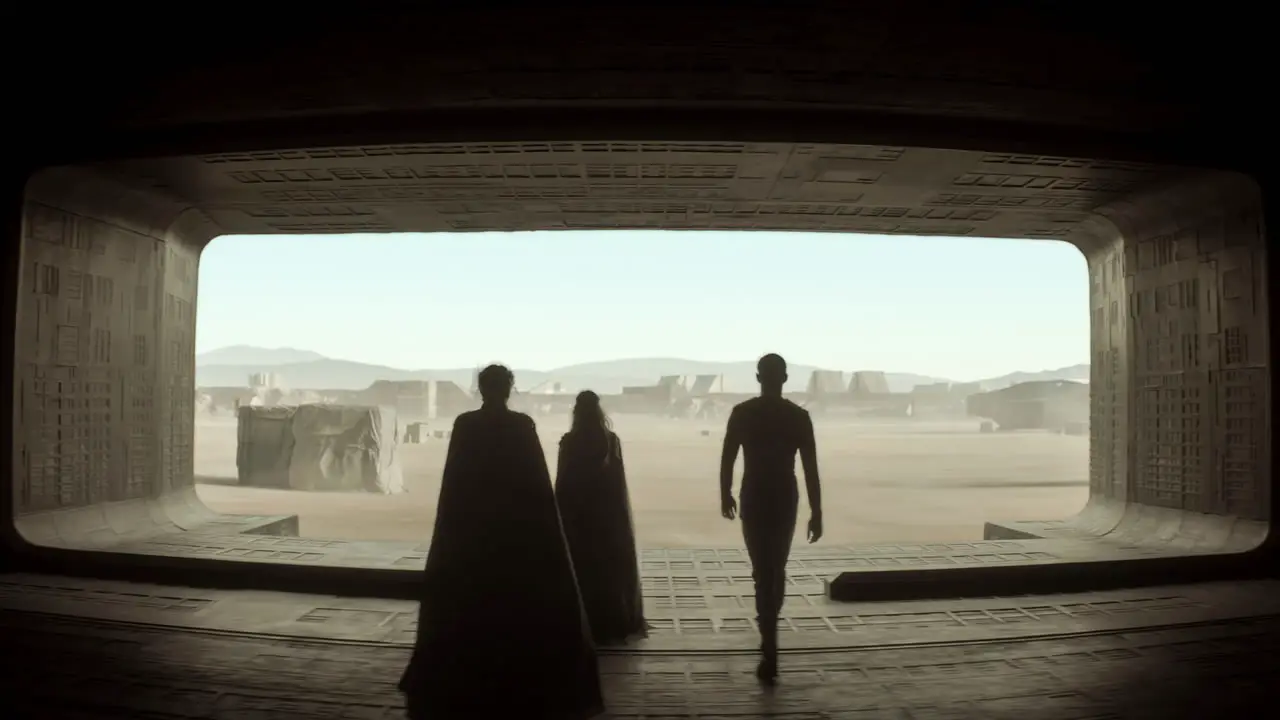
Thanks to Warner Bros. Discovery for providing Dune News Net team members with review screeners for this episode of Dune: Prophecy.


